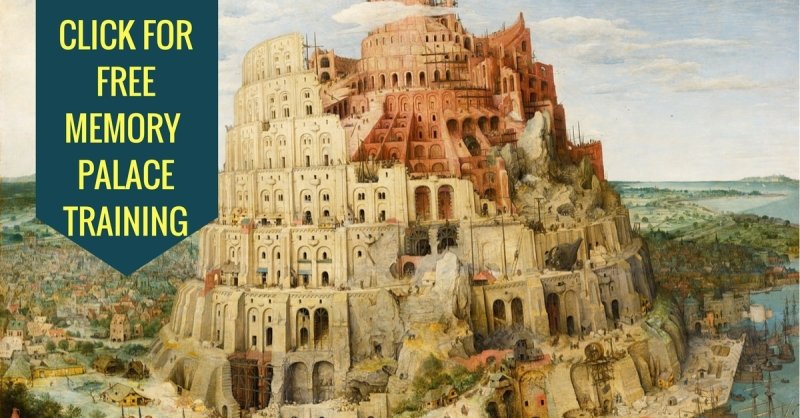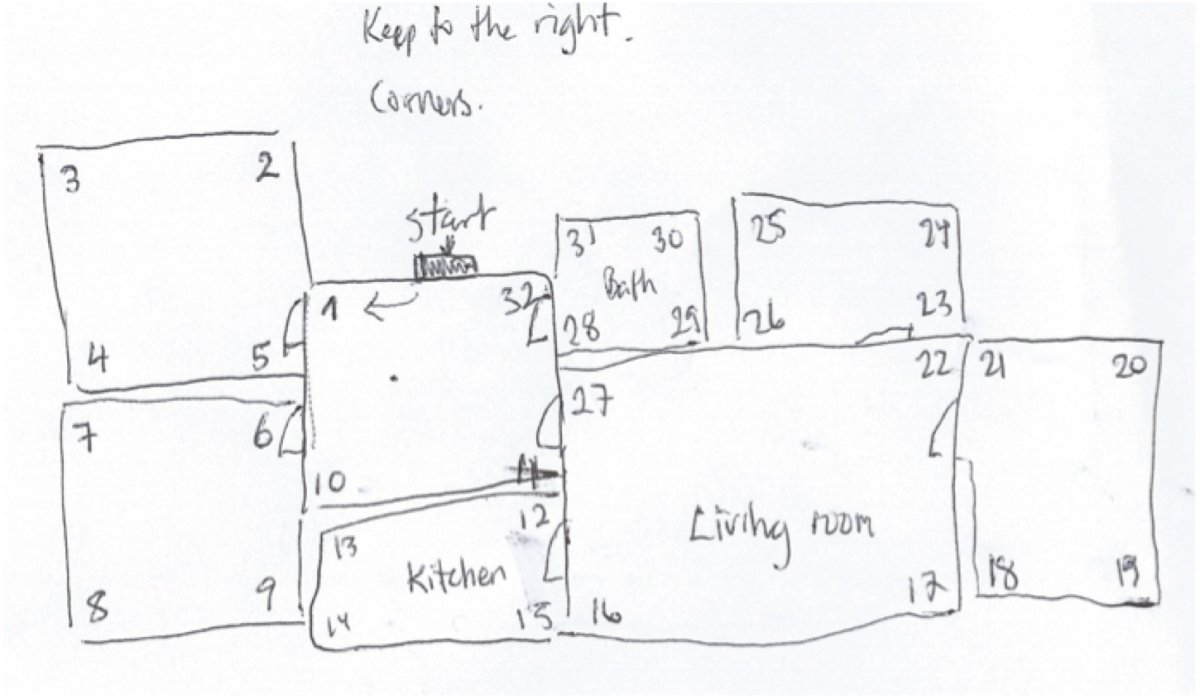Wed, 29 April 2015
Have you ever wanted simple memory improvement tips that you can use straight out of the box? If so, then you’re in full a real treat. On this episode of the Magnetic Memory Method Podcast, Dr. Gary Small offers you some of the best ideas from his book, 2 Weeks to a Younger Brain. It was such a pleasure speaking with memory training and brain health fitness expert Dr. Small that I’ve had the interview transcribed. You can read it below or download a PDF version of the interview using the link at the bottom of the transcription. Enjoy! Why Even The Young Can’t Avoid Memory Loss
Anthony: Dr. Small, what is your first memory of being interested in the subject of memory?
Dr. Small: Well, I think I got interested in it when I started studying Alzheimer’s disease and geriatrics. When I got into the field of gerontology, I realized that one of the biggest problems we face is cognitive decline as we age. Alzheimer’s is the most common cause of that decline. It turns out, before people get Alzheimer’s disease, they have milder memory complaints. There is just so much worry and concern among millions of people about these age-related memory slips and what we can do about them. That’s really how I got started.
Anthony: You mentioned in the book that memory can start decaying or getting worse even younger than we think. What is one of the typical ages that memory loss can start to occur?
Dr. Small: Usually people begin to notice it in their 40s and studies of neuropsychological testing, pencil and paper tests done on many, many research subjects, has found that for the average 40‑year-old a decline in memory performance can be detected. However, we have done some recent studies, collaborating with Gallop Poll, where we find that people even in their early 20s begin to start complaining about their memory. Now, their complaints are probably different from those of somebody who is in their 70s, but still the methods we’ve developed for the book apply to people of all ages.
Anthony: Given this wide age range, is there a common so to speak anti-memory activity that people are engaging in every day and if so what are those things and how can they be treated or how can people go about their daily activities differently so that they are honoring their memories and their brains?
Dr. Small: That is really what the book is about and it takes the latest science of the brain and explains it in a way that people can understand. It then translates that science into practical strategies that people can begin using.
In the 2-week program, we introduce them to these exercises, strategies and they gradually build up their mental strength, and memory power over that 2-week period and it is just long enough for those exercises to become habit-forming. It involves physical exercise, it involves mental stimulation, stress management, nutrition and learning techniques to compensate for any age-related memory challenges people are experiencing.
Can We Really Trust Memory Exercises To Ward Off Alzheimer’s?
Anthony: You mentioned a lot of different memory exercises in the book. I am wondering if you have a personal favorite out of them all that addresses some of the prevention of Alzheimer’s and just longevity in general that you enjoy the most that you do yourself?
Dr. Small: Let me just clarify. I do not know that the memory exercises will prevent Alzheimer’s, but I think that physical exercise very well may delay the onset of symptoms as will general mental stimulation and proper diet. What the memory exercises will do is to compensate for the decline so people can have a stronger memory longer even as their brains age.
If you look at all of these different exercises, it really boils down to two methods that we now call focus and frame. We need to focus our attention because the biggest reason people do not remember is they are simply not paying attention, they are not getting the information into their brains.
Frame is shorthand for trying to frame the information, providing a framework so that it has meaning. If something is meaningful, it will become memorable and we do that by using visual images. Our brains are hardwired to remember visually very effectively.
We can take a very common memory complaint like names and faces, forgetting names and faces, and teach people how to create visual images to link the name to the face. Therefore, if you meet Mr. Foreman, you might notice that he has a prominent forehead. You notice that distinguishing figure and that links it up with the name in a visual way.
The Shocking Truth About Visual Skills And Memory
Anthony: Many of the memory exercises do involve some sort of visual imagination, and one thing I hear from a lot of people is that they are just not visual. They are maybe more auditory or kinesthetic or conceptual. Is there any advice you would have who would feel they do not have the visual capacities that many of these exercises seem to call for?
Dr. Small: That gets down to a common principle that we want to train and not strain our brains and try to cross-train the brain. Everybody has innate strengths and weaknesses. In areas that are weak, it may be visual skills. Those can be built up gradually. In areas that are strong, we can leverage those strengths to help us compensate better. People who are better with auditory skills can say the name or word to themselves or think up a musical jingle that might help them remember something better.
The Minimalist Guide To Einstein’s Brain
Anthony: You mentioned in 2 Weeks to a Younger Brain a few times Einstein’s brain and maybe you can describe that a little bit. Why does not everyone have a brain automatically like Einstein’s brain?
Dr. Small: I think, to a certain degree, it is genetics. Let us face it some people are Einstein’s at birth and others are not. When they looked at Einstein’s brain remarkably, it looked very much like the average person’s brain except for this area called the corpus callosum, which is the connecting point between the right brain and the left brain. What we might theorize is that Professor Einstein was better able to process information quickly compared to the average person.
Another point we make in the book is that genetics is only part of the story. In fact, the MacArthur study on successful aging taught us for the average person nongenetic factors are more important to keeping your brain young. That is why we emphasize all the simple things that people can do every day to get their brains to function better and their memory to be sharper.
What Video Games Can Teach You About |
Thu, 23 April 2015
Me too. If I don’t use the simple memory improvement techniques I’ve learned, my memory has about the same chance as a dog hearing “sit” once without a shred of repetition. It doesn’t do much good for improving memory. But we’re not dogs. And we have memory techniques. We can hear something once and memorize it forever. And without being dramatic or theatrical (a rare thing for me, dear Memorizers), I can tell you that I think that not developing the skill to do so is a crime against humanity. Failing to memorize using the simple techniques I teach robs not only yourself, but many others of the benefits of this powerful skill. Plus, you get to share information that you’ve placed in your mind. Valuable knowledge that you can produce at will. Change the world kind of stuff. Or it can be the memorize of simple things that makes a huge difference. Like when you’re boarding a plane and you keep forgetting your seat number, holding up the line to look at your ticket for the umpteenth time. Or when your child asks you what year some important event took place for his or her exam at school (major). Or when you’re playing Blackjack and you have no idea how many cards are out (could be major, could be minor depending on your pot). Or when you’re talking to someone and you have to ask them for a second time what their name is, sometimes just 30 seconds or less after the first time you heard it … This final point is a real doozy. Memorizing names is a moral obligation because it tells the person you’re meeting that you care about who they are, that they’re someone worth knowing, that their name has value. Some names are easy. You don’t need a special method to memorize Tom, Dick or Harry (at least most of us probably don’t). But the world is becoming more and more internationalized. We’re meeting more and more people with name structures that we’re not familiar with. And we need to be able to remember them in to be more sociable and to ensure that people know we value them in the daily interactions we make. It’s not that difficult. Hear a name, make a bizarre, exaggerated, big and bright picture filled with zany action and you’ll have that name memorized in a Magnetic second. As you know, there are many others. And a lot of fine details that structure each. It makes a huge difference if you know what they are and how to use them. That’s why I’m making the crazy offer of joining the Masterclass for the trial price of $1. For just a buck, you get 7 days access to the Magnetic Memory Method Masterclass. That’s seven days to work on improving your memory. Seven days to feel the power of memory improvement. Click here for more info and a lesson on 8 Important Memory Principles You Should Follow. The post Improving Memory And The Moral Obligations Of Memory Improvement appeared first on Magnetic Memory Method - How to Memorize With A Memory Palace.
Direct download: Improving_Memory_And_The_Moral_Obligations_Of_Memory_Improvement.mp3
Category:Podcast -- posted at: 7:10am EDT |
Wed, 15 April 2015
Guest post and podcast narration by Tor Refsland. You’ve finally made the decision. You are going to improve your memory by building a Memory Palace and learn how to memorize things fast using memory techniques. You are so excited! You know that learning how to memorize things fast will give you the unfair advantage compared to the rest of the world. So you close your eyes and start to dream of your new future. The feeling of being able to impress your family and friends by reciting stored information as if you were a super computer can only be described with two words … Freakin’ Awesome! Perhaps your friends will be so impressed that they will insist on buying you drinks every time you go out. And your parents might finally realize that you are the prodigy among your siblings and make you the sole inheritor of your family`s legacy. There is only one problem. You are a victim of one of the biggest success crushing myths…
You THINK you don’t have time.
But if I could prove to you that you actually have more than enough time to learn memory techniques, would that be interesting to you? If so, then read every single word of this post, because it could really change your life. Let me show you how to find time to create a Memory Palace and start using it in record time.
How To Create More Time
Since we all only have 24 hours per day, time is our most important asset. But you already know that from reading Time Management Chef, right? The real issue is that you are super busy and your schedule is packed, right? Welcome to the club! That is why creating more time is the most important skill you will ever learn. But before I move on and tell you how to create more time, let me start by explaining my definition of productivity.
This Productivity Formula Will Double And Even Triple Your Free Time For Using The Magnetic Memory Method
Time period x Goals achieved = Productivity Your productivity is the total sum of the goals you achieve in a certain period of time. There are only two ways to improve your productivity: – you can achieve the same goals in a shorter period of time – you can achieve more goals in the same amount of time If you want to become a productivity superstar you can dramatically increase your own productivity by shortening the period of time and increasing the amount of goals you achieve. That is the exactly what I did when I increased my own productivity by 200%. 200% is insane. If you could experience the same boost, that means you would increase your productivity by four times! Using this formula, I now do in 2 hours what I normally used to do in 8 hours. Even better, you can take this free memory improvement course first:
The Surprising Tip That Will Free Up Your Time – Fast!
So how do we actually create more time? Let me give you a quick crash course. There are 3 components that will help you create more time: 1. Planning and prioritizing The experts say that every minute spent in planning will save you 10 minutes in execution. In my article at Successful Blogging I talk about planning and prioritizing. For example, you can use the ABCDE method to prioritize your tasks: A: Tasks I must do – serious consequences if it doesn’t get done B: Tasks I should do – mild consequences if it doesn’t get done C: Tasks I could do – no consequences if it doesn’t get done D: Tasks I delegate E: Tasks I never do Never do a B task before you have done all the A tasks. Likewise, never do a C task before you have done all the B tasks, etc. And apply the 80/20 rule: you need to identify each day, which 20% of the tasks on your to do list will give you 80% of the results. By starting to implement the tactics above, you can literally increase your productivity with 100 % over night. 2. Focus One of the most important skills when it comes to becoming more productive and achieving your goals in a shorter period of time, is the ability to focus. As I talk about in my article on Blogging Wizard, true focus comes with some requirements. In order to be able to laser focus, you have to: - knowing what to do (work from a plan – to do list)
3. Increase productivity Increasing productivity means that we are able to increase our results in a shorter period of time. Becoming more productive is key when it comes to freeing up more time in your life, so you can spend it on practicing memory techniques. On Skip Prichard’s site, I’ve talked about one important factor – a factor that can change everything once you understand it. Studies have shown that most people are most productive the first 2 hours after they get out of bed in the morning. Some people are most productive in the evening or perhaps during the night. What does this mean? It means you have to identify at WHAT time you are the most productive. Then you have to reserve that period of time for your most important tasks. This will literally turbo boost your productivity. In combination with the time management and productivity techniques you’ve just learned, to improve your memory fast …
You Need The Right Tools
When Anthony asked me to write a guest post for his great website, I asked him for more information regarding the memorizing technique topic. He recommended that I read one of his posts about creating and populating a Memory Palace. Needless to say, Anthony Metivier is one of the best in the business when it comes to helping people learn how to memorize things fast. So what did I do? I read the article and decided to use my productivity formula, then I got cranking.
How To Create A Memory Palace
Since I had never created a Memory Palace before, I wasn’t aiming for a world class Memory Palace. But as a time management and productivity expert, “how long will it take to create a Memory Palace?” was the first question that came to mind. My next question was, “where should I start my path through the Memory Palace?” To keep things simple and quick, I decided to use my most familiar place. So I drew an outline of my apartment, and set a station in every corner of every room. To make sure the Memory Palace followed the Magnetic Memory Method principles, I made the starting point in my Memory Palace the front door. In order to keep my path linear, I made sure to create the journey so that I always follow the right side of the wall.
A couple more decisions later, I had built my first Memory Palace. My success felt awesome! I thought I was going to spend at least 30-40 minutes on it! But 32 stations in just 10 minutes? That`s incredible. Will you be able to complete your first Memory Palace in less than 10 minutes? If you follow the principles, I don’t see why not. The most important thing is that you ask the same questions I asked myself and then complete your Memory Palace as soon as possible. And remember the following:
– move around in the Memory Palace in a logical manner If you haven`t created a Memory Palace, please spend up to 10 and no more than 15 minutes to create it now. Have you done it? Awesome. Okay, what`s next? Then it`s time to… Populate the Memory Palace With Killer Information!
As with most things in life, the more passionate you are about the subject, the easier it will be to remember. Since I`m a time management expert, I don’t spend my time on anything that doesn’t either save me a lot of time, or give me a good amount of value for the time I have spent. I’m always about getting the biggest ROI (return on investment). After all, what’s the point of building a Memory Palace only to populate it with boring, trivial information that you almost NEVER use? In addition, your first Memory Palace should consist of information that won`t get outdated and that you won’t need to switch out. The best information to memorize is the information you want to hold in memory forever. And because it’s important and excites you, this will increase the speed and intensity you bring to the memorization process. So what did I do? I had the following criteria:
Since I have my own blog where I write about time management, I needed to pick a topic that would be useful for my business. I ended up with headline templates for blog posts. Notice, I didn’t say headlines. I said headline templates. Why? Because knowing X amount of headline templates is better, than knowing the same amount of headlines (which you would need to dissect, analyze and convert into a template anyway, if you wanted to use each headline in the best way possible). No need to recite the best headlines ever made, if you can`t apply their formula? Right? And as you continue reading, you might want to think how memorizing templates might help you in your studies or profession. For my purposes, I decided to memorize 8 headline templates from Jon Morrow’s free 52 Headline Hacks: 1. The Zen of X 2. Can`t keep up? The 11 Ways to Simplify Your X 3. How to Take Charge of Your X 4. The Minimalist Guide to X 5. 10 Shortcuts for (CTP – completing tedious process) in Record Time 6. Get Rid of (recurring problem) Once and for All 7. How to End X 8. How to X in 5 Minutes After 30 minutes I had memorized them.
All of them!
How did I remember them ? I started with memorizing bullet point 1 with a vivid picture. Then I recited bullet point 1 and created bullet point 2. And so on. It looked like this: 1. Memorize bullet point 1 It looks rather easy, right? No degree in rocket science needed here. Just following a simple system will do the trick.
How To Find Time To Maintain Your Memory Palace
In order for you to train your memory and to be able to find and recite the necessary information even quicker, you want to take a walk in your Memory Palace daily. How do you find the time for doing this? Spend the time that you are already using on other routine activities. You can recite your whole Memory Palace and everything in it while you do your morning routine, when you are taking the commute or when you are working out. I would recommend going through your Memory Palaces once a day at the same time everyday. Think about it. You will be brushing your teeth no matter what. Why not take a morning stroll through your Memory Palace at the same time? You may be thinking: Okay, Tor, I get it. But when do I find time to expand my Memory Palace? Well, let`s cover that in the next section…
How To Find Time To Expand Your Memory Palace
When to expand your Memory Palace, depends on your need. However, when you are a beginner when it comes to using memory techniques I would recommend to start slowly. The most important thing is to actually build your first Memory Palace and maintain it by reciting it daily (for example, as part of your morning routine). You can for instance put new bullet points into your Memory Palace every Saturday after breakfast, or when you are doing commute or working out. When exactly you do this depends on the schedule you have set for yourself in order to reach your specific goals.
Remember …
… the most important thing is to have fun and to just start applying it. If you set a schedule that is too hard when it comes to expanding your Memory Palace, you will become fed up and probably look at it as a tedious, boring task. But it should be neither tedious nor boring. There’s too much to gain by expanding your memory, increasing your brain capacity, boosting your confidence and saving time reciting stored information. In addition to the benefits above, I know that when you are willing to set aside time, you can learn whatever skill you want. Now you have the recipe for how to create a Memory Palace, how to memorize things fast and how to do both in record time. So get out there, expand your memory and have fun! If you want to learn how to create more time, click here to get my free eBook Insane Productivity Hacks and learn how to DOUBLE your productivity in 7 days. The post How to Memorize Things Fast Using These Time Management Tips appeared first on Magnetic Memory Method - How to Memorize With A Memory Palace.
Direct download: How_to_Memorize_Things_In_Record_Time_Using_These_Time_Management_Tips.mp3
Category:Podcast -- posted at: 5:21pm EDT |
Thu, 9 April 2015
|
Thu, 2 April 2015
They want to remember their dreams with clarity, consistency and in ways that change their lives. Profoundly. And although I don’t do lucid dreaming myself all that often (and try to avoid it), remembering dreams can help you feel more lucid during your waking life. Here’s what I mean with props to my friend Stefan for his incredible lucid dreaming and memory questions: Even with this powerful information, I wonder how many people will ever develop the skills needed to recall their dreams consistently? If the number is low, I find that incredibly sad. Because here’s the consequence: Now being able to remember your dreams means you will never develop fluency in one of the world’s most prominent languages: the language of dreaming. Worse, you will never experience the nuances and layers of experience made possible by advanced dream recall.
Why Is Remembering Dreams Just As Difficult As Lucid Dreaming?
Why is dream recall such a struggle? Many would-be dreamers blame a lack of sleep time. They don’t have enough time in bed for effective dreaming. But with proper training in dream recall, you can learn to notice yourself entering the dream world even before you’ve fallen “unconscious.” Don’t believe the REM myth that dreaming begins at some special hour after you’re in deep sleep. The notion that dreaming only occurs during REM has never been true. In fact, you are dreaming right now but have not yet learned to see and experience it. In short, dream recall begins by changing your definition of what counts as a dream. Then try some of these tips: But even with an improved definition (you’re always dreaming), some still claim that dream recall is too hard. And no doubt. Authors on the top don’t make it easy. They teach that you should draw symbols on your hand, practice “reality checking” and engage in other tedious methods. The truth is that you don’t need to artificially create “triggers.” There are better ways, more enlightening and elucidating ways, and ways that can improve all aspects of your life. So what helps with dream recall? 1. A Dedicated Memory Strategy For Remembering Your DreamsStrategy starts with motivation, so before you start, please make sure that you really want to remember your dreams. It’s an important consideration because you learn a lot about yourself when you recall dreams at an advanced level. And you motivation requires method if you’re going to experience real gains as you stretch your memory muscles. 2. Believe That Dream Memory Strategies Will Work For YouPeople often tell me that they cannot remember any dreams. They never have and never will. But such statements usually come from disbelief. Dream recall has been going on for thousands of years using different techniques. If you can accept that you’re not different than anyone else, your memory will amaze you with what you can achieve. Try out the main technique discussed in this episode of the podcast and you will marvel at the progress you’ll make. 3. Stop Thinking That Memory Strategies Are Too Much WorkYou will need 1-5 minutes every morning to practice the dream recall technique talked about in this podcast. There’s nothing to it. You only have to do it over a period of two or three days to get results. Often, you’ll get results as soon as the next day. The best part is that once you start, dream recall will serve your life in many ways. So I have a suggestion for you before you finish the podcast and start your journey toward advanced dream memorization skills. Believe in yourself. When I started working on dream recall, I told myself it wouldn’t work. I wasted a lot of time with this false belief. But once I settled into the practice, dream recall hooked me. Now I’ve got a YouTube playlist all about the practice: The ability to remember your dreams with near-100% accuracy creates wonderful things for you. And it opened the world’s doors for me. It also healed me in many ways and changed how I view reality. As a result of dream recall, I am more a positive, productive and contributing member of society. And I’m confident that becoming an effective dream memorizer will do the same for you. Please note that I’m not talking about anything “New Agey” or “NLP-ish.” I base the dream recall techniques and related approaches I teach on scientifically demonstrated principles known to increase the happiness of individuals. Dreams remain essential to the human experience. And those with an advanced ability to engage with their dreams experience greater pleasure and more interesting lives. So I hope that you will take the time to practice dream recall after listening to this episode of the Magnetic Memory Method Podcast. And if it changes how you think about lucid dreaming, let me know. You can also check out the Magnetic Memory Method Masterclass for more information about advanced dream recall. Further Resources Lucid dream article on Wikipedia A dreamy article about using movies and series as Memory Palaces The post Memory Strategies For Your Nightlife And Why I Don’t Do Lucid Dreaming appeared first on Magnetic Memory Method - How to Memorize With A Memory Palace.
Direct download: Memory_Strategies_For_Your_Nightlife_And_Why_I_Dont_Do_Lucid_Dreaming.mp3
Category:Podcast -- posted at: 6:50am EDT |
The Magnetic Memory Method Podcast

Categories
generalMemory Improvement Tools
Memory Method Tips
Brain Exercises for Memory Improvement
Memory Improvement Case Studies
Podcast
Guest Post
Memory Palace Tactics
Practical Memory Techniques
Uncategorized
Improve Memory Q&A
Archives
AprilMarch
February
January
December
November
October
September
August
July
June
May
April
March
February
January
December
November
October
September
August
July
June
May
April
March
February
January
December
November
October
September
August
July
June
May
April
March
February
January
December
November
October
September
August
July
June
May
April
March
February
January
December
November
October
September
August
June
May
April
March
February
January
December
November
October
September
August
July
June
May
April
March
February
January
December
November
October
September
August
July
June
May
April
March
February
January
December
November
October
September
August
July
June
May
April
March
February
January
December
November
October
September
August
July
June
May
April
March
February
January
December
November
October
September
August
July
June
May
April
March
February
January
December
November
September
| S | M | T | W | T | F | S |
|---|---|---|---|---|---|---|
| 1 | 2 | 3 | 4 | |||
| 5 | 6 | 7 | 8 | 9 | 10 | 11 |
| 12 | 13 | 14 | 15 | 16 | 17 | 18 |
| 19 | 20 | 21 | 22 | 23 | 24 | 25 |
| 26 | 27 | 28 | 29 | 30 | ||
Syndication


 A lot of people suffer from a “bad memory.”
A lot of people suffer from a “bad memory.”



 People around the world wish they could remember their dreams. And not just remember them.
People around the world wish they could remember their dreams. And not just remember them.